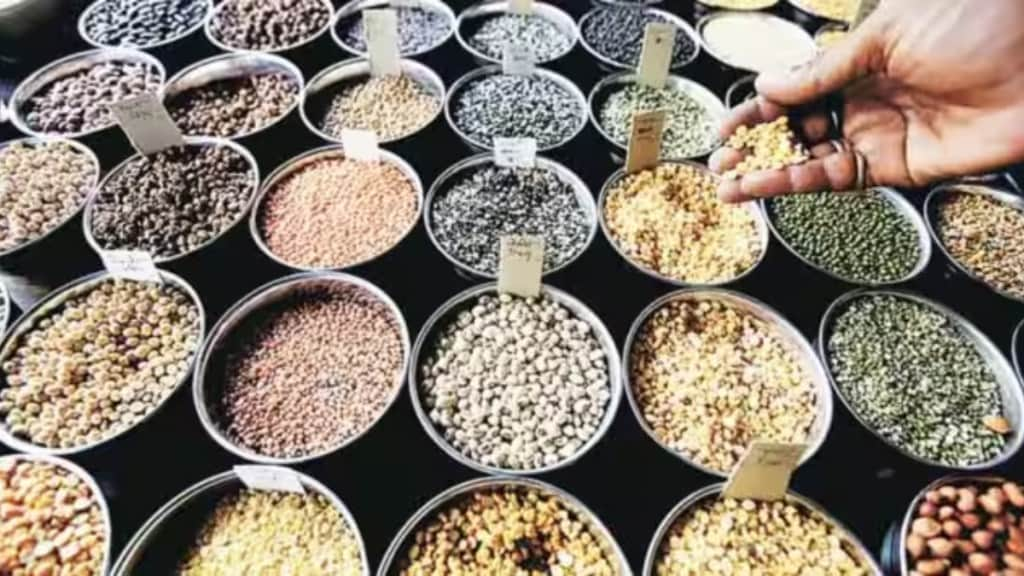Prices of several kharif crops – cotton, tur, groundnut, maize and moong, whose arrivals have commenced are currently ruling above Minimum Support Price (MSP) by 4.5-43% at various agricultural produce marketing committee (APMC) yards across the country.
Officials said that prices are ruling above MSP for pulses and oilseeds because of robust demand and domestic shortfall in the production.
They said the government is aiming to increase domestic supplies of pulses varieties and oilseeds through a liberalised imports regime.
“While the import duty for urad and tur varieties have been made duty-free till March 31, 2024, domestic market prices ruling above MSP would incentivize farmers for increasing output,” an agriculture ministry official said.
According to trade sources data, mandi prices on Tuesday of maize in Karnataka, the biggest producer of coarse cereals, was tad above MSP while prices of soybean in the Madhya Pradesh market were 4.5% below the MSP.
Soybean prices have not gone above MSP because of surplus imports due to softening of global edible oil prices. The Solvent Extractors Association of India (SEA) has stated that India’s import of edible oils – palm, soybean and sunflower is projected at a record 17 million tonne (MT) in the current oil year (November-October).
Bajra prices in Rajasthan markets were more than 20% below the MSP indicating bumper output against the demand.
‘Rising demand of several crops such as pulses, oilseeds and cotton have pushed up prices beyond MSP which would help farmers in getting higher returns,” P K Joshi, agricultural economist & former director, south Asia, International Food Policy Research Institute (IFPRI), told FE.
Tur dal market prices in Uttar Pradesh where arrivals have just commenced are currently ruling 43% above MSP at Rs 10000 a quintal because of lower production and sluggish imports have pushed up prices. Traders say that with the arrivals picking up pace in Maharashtra and Karnataka by next month, mandi prices may decline but will be ruling above MSP of Rs 7000/quintal for the rest of the year.
The retail inflation in pulses in last month was 16.38% compared to 13.04% in August while arhar variety of pulses reported a price rise of 37.34% last month.
For augmenting domestic supplies, India signed an MoU with Mozambique for import of 0.2 million tonne (MT) of tur or arhar annually for five years when the retail prices skyrocketed to Rs 200 a kg in 2016. This MoU was extended for another five years in September 2021.
In 2021, India entered into MoUs with Malawi and Myanmar for the import of 50,000 tonne and 0.1 MT of tur per annum, respectively, till 2025.
Meanwhile, the prices of non-bamsati paddy are varying across the states depending on the varieties. A major chunk of the common variety of paddy grown in the country are purchased by the government agencies such as Food Corporation of India and state govenrment owned agencies under MSP operations.
The agriculture ministry is likely to release the first advance estimate of kharif crops production this week. The kharif crops sowing of paddy, oilseeds, sugarcane and coarse cereals have been higher than last years’ level while sowing of pulses and cotton have declined compared to previous year.

